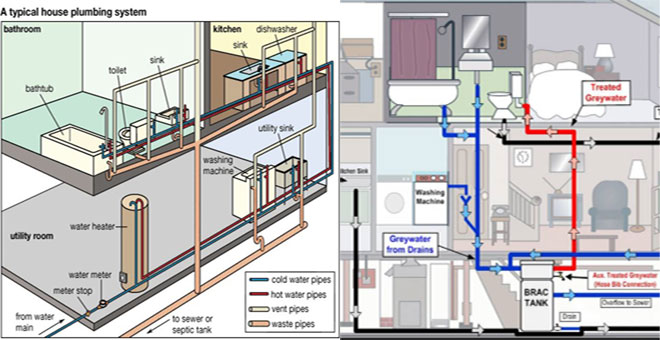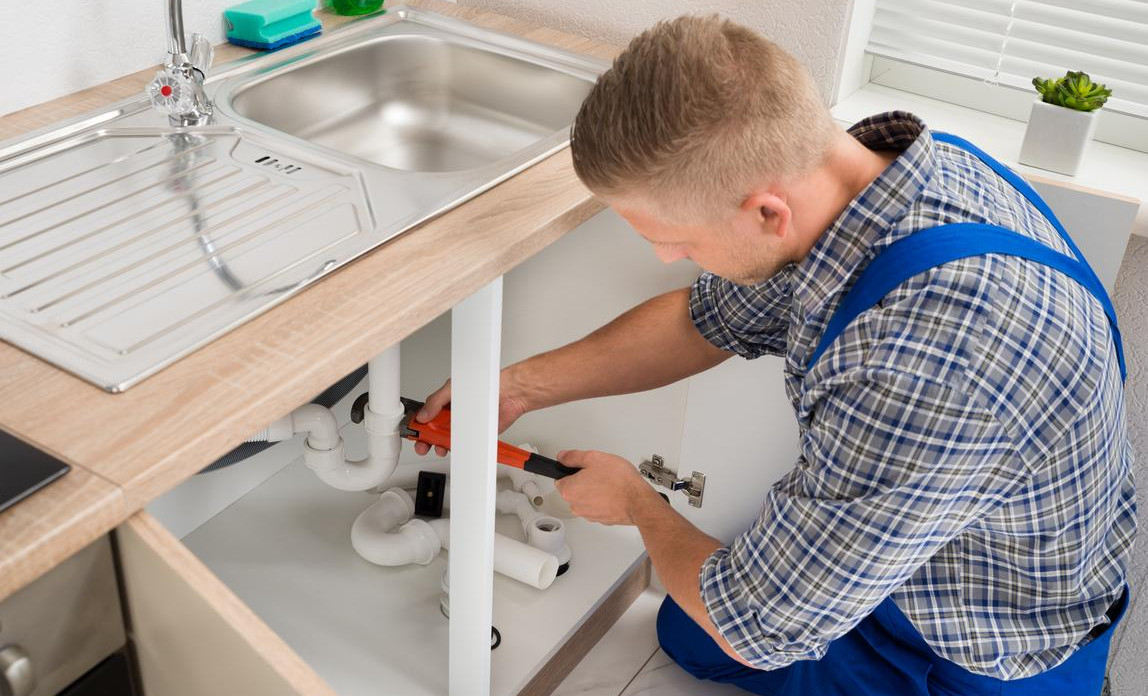Presented here in the next paragraphs you will discover a lot of reliable answers relating to Understanding Your Home's Plumbing Anatomy.

Comprehending exactly how your home's plumbing system works is vital for each home owner. From supplying tidy water for alcohol consumption, food preparation, and showering to safely eliminating wastewater, a well-kept plumbing system is important for your household's health and comfort. In this thorough guide, we'll discover the detailed network that comprises your home's plumbing and deal suggestions on upkeep, upgrades, and handling usual problems.
Intro
Your home's pipes system is more than just a network of pipes; it's a complex system that guarantees you have access to clean water and reliable wastewater elimination. Understanding its elements and how they interact can assist you avoid costly fixings and make certain whatever runs smoothly.
Standard Parts of a Plumbing System
Pipelines and Tubing
At the heart of your plumbing system are the pipelines and tubing that lug water throughout your home. These can be made from various products such as copper, PVC, or PEX, each with its advantages in regards to sturdiness and cost-effectiveness.
Fixtures: Sinks, Toilets, Showers, and so on.
Fixtures like sinks, commodes, showers, and bathtubs are where water is made use of in your house. Comprehending how these components connect to the pipes system helps in identifying issues and preparing upgrades.
Shutoffs and Shut-off Points
Shutoffs control the circulation of water in your pipes system. Shut-off valves are critical during emergency situations or when you need to make repair services, allowing you to isolate parts of the system without interrupting water circulation to the entire residence.
Supply Of Water System
Key Water Line
The main water line attaches your home to the community water or a private well. It's where water enters your home and is dispersed to various fixtures.
Water Meter and Stress Regulator
The water meter procedures your water usage, while a pressure regulatory authority ensures that water streams at a secure pressure throughout your home's pipes system, preventing damage to pipes and components.
Cold Water vs. Hot Water Lines
Comprehending the difference between cold water lines, which supply water straight from the major, and hot water lines, which carry warmed water from the water heater, helps in fixing and preparing for upgrades.
Drainage System
Drain Water Lines and Traps
Drain pipelines carry wastewater away from sinks, showers, and bathrooms to the sewage system or septic tank. Traps avoid drain gases from entering your home and also trap debris that might trigger obstructions.
Air flow Pipelines
Ventilation pipes enable air right into the water drainage system, preventing suction that could slow drain and create catches to vacant. Correct air flow is essential for maintaining the stability of your pipes system.
Value of Correct Water Drainage
Making certain proper drainage avoids backups and water damage. Frequently cleaning up drains and maintaining catches can prevent costly fixings and expand the life of your pipes system.
Water Furnace
Kinds Of Water Heaters
Hot water heater can be tankless or conventional tank-style. Tankless heaters warm water on demand, while tanks save heated water for prompt usage.
Just How Water Heaters Attach to the Plumbing System
Understanding exactly how water heaters connect to both the cold water supply and hot water circulation lines assists in identifying concerns like not enough hot water or leaks.
Upkeep Tips for Water Heaters
Consistently purging your water heater to eliminate sediment, checking the temperature level setups, and evaluating for leaks can expand its lifespan and boost energy efficiency.
Usual Pipes Issues
Leakages and Their Reasons
Leaks can occur as a result of aging pipes, loosened fittings, or high water stress. Resolving leaks promptly protects against water damages and mold development.
Clogs and Obstructions
Obstructions in drains pipes and toilets are typically triggered by flushing non-flushable things or an accumulation of grease and hair. Utilizing drain screens and being mindful of what decreases your drains can prevent clogs.
Signs of Plumbing Issues to Look For
Low water pressure, slow drains, foul odors, or abnormally high water bills are signs of prospective pipes problems that ought to be attended to promptly.
Plumbing Maintenance Tips
Routine Examinations and Checks
Schedule annual pipes inspections to catch issues early. Try to find indicators of leaks, corrosion, or mineral accumulation in taps and showerheads.
Do It Yourself Upkeep Tasks
Easy tasks like cleansing tap aerators, looking for toilet leaks utilizing dye tablets, or protecting revealed pipelines in cold climates can avoid major pipes concerns.
When to Call an Expert Plumbing Professional
Know when a plumbing problem calls for professional know-how. Trying complex repair services without correct knowledge can result in more damage and higher repair service prices.
Updating Your Pipes System
Reasons for Updating
Updating to water-efficient components or replacing old pipes can enhance water high quality, minimize water expenses, and boost the worth of your home.
Modern Pipes Technologies and Their Advantages
Discover modern technologies like smart leak detectors, water-saving commodes, and energy-efficient water heaters that can save money and decrease environmental effect.
Expense Considerations and ROI
Determine the in advance prices versus lasting financial savings when taking into consideration plumbing upgrades. Numerous upgrades pay for themselves with decreased utility bills and fewer repair work.
Ecological Effect and Preservation
Water-Saving Components and Home Appliances
Setting up low-flow faucets, showerheads, and toilets can substantially minimize water usage without sacrificing performance.
Tips for Reducing Water Use
Straightforward habits like fixing leakages without delay, taking much shorter showers, and running full loads of laundry and dishes can preserve water and reduced your utility bills.
Eco-Friendly Pipes Options
Take into consideration lasting plumbing materials like bamboo for flooring, which is durable and eco-friendly, or recycled glass for kitchen counters.
Emergency situation Preparedness
Steps to Take Throughout a Pipes Emergency
Know where your shut-off valves lie and how to switch off the water system in case of a burst pipeline or significant leakage.
Importance of Having Emergency Situation Contacts Convenient
Keep contact details for regional plumbing professionals or emergency situation services readily offered for fast feedback throughout a plumbing situation.
DIY Emergency Situation Fixes (When Appropriate).
Temporary fixes like making use of duct tape to spot a leaking pipe or positioning a container under a leaking tap can minimize damages until an expert plumber shows up.
Conclusion.
Understanding the composition of your home's pipes system empowers you to preserve it properly, conserving time and money on fixings. By following regular maintenance routines and staying notified about contemporary pipes innovations, you can guarantee your plumbing system operates successfully for years ahead.
The Anatomy of Your Home s Plumbing System
Understanding the anatomy of your home s plumbing system is essential for any homeowner. It not only helps in identifying potential issues but also facilitates effective communication with professionals when repairs or upgrades are needed. Your home s plumbing system is more than just pipes and faucets; it s a complex network that ensures the efficient and hygienic flow of water in and out of your house. In this blog, we ll dissect the crucial components of your home s plumbing system. For those in Antelope Valley, Brock Plumbing is your trusted partner for all your plumbing needs, ensuring your system functions smoothly and efficiently.
Water Supply System
- Main Water Line: This is where your home s plumbing system begins. The main water line connects your home to the public water supply or a private well.
- Pipes and Shut-off Valves: Pipes distribute water throughout your home. Shut-off valves are crucial for controlling the flow of water and making repairs without shutting off the entire system.
Drainage System
- Drain Pipes: These pipes carry waste and water away from sinks, toilets, and showers.
- Vents: Vents allow sewer gases to escape and help maintain proper pressure in the drainage pipes, ensuring efficient flow of wastewater.
- Traps: Every fixture has a trap, a U-shaped pipe that holds water and prevents sewer gases from entering your home. The most common is the P-trap under sinks.
Fixtures and Appliances
Fixtures and appliances are the most interacted with parts of your plumbing system. They include sinks, toilets, showers, dishwashers, and washing machines. Each fixture and appliance has its own supply and drainage connection, ensuring they receive clean water and can dispose of wastewater effectively.
Water Heating System
Your water heater is a crucial component, providing hot water to various fixtures and appliances in your home. It can be tank-based or tankless, with each type having its own set of advantages and maintenance requirements. Regular maintenance is essential to ensure efficient operation and extend the lifespan of the unit.
Sump Pump
In areas prone to flooding or with high water tables, a sump pump is an essential part of the plumbing system. It s installed in the lowest part of your basement or crawlspace and pumps out water that accumulates, preventing flooding and protecting your home from water damage.
Septic System
Homes that are not connected to a municipal sewer system have a septic system and an underground wastewater treatment structure. Understanding how to maintain your septic system is crucial to prevent backups, odors, and early system failure.
Conclusion
Your home s plumbing system is a complex and essential network, ensuring the efficient and hygienic flow of water in and out of your property. Understanding its key components helps in maintaining it properly and identifying issues before they escalate into major problems. For residents in Antelope Valley, Brock Plumbing is dedicated to providing top-notch services, ensuring that every part of your plumbing system is in perfect working order. Trust our team of professionals to handle all your plumbing needs, ensuring your home remains comfortable, safe, and well-maintained.
https://brockplumbinganddrains.com/blog/the-anatomy-of-your-homes-plumbing-system/

We were made aware of that article about Exploring Your Homes Plumbing Anatomy through an associate on a different blog. Sharing is caring. Helping others is fun. We love your readership.
Call Today
Comments on “The Basics to Your House's Plumbing System Anatomy”